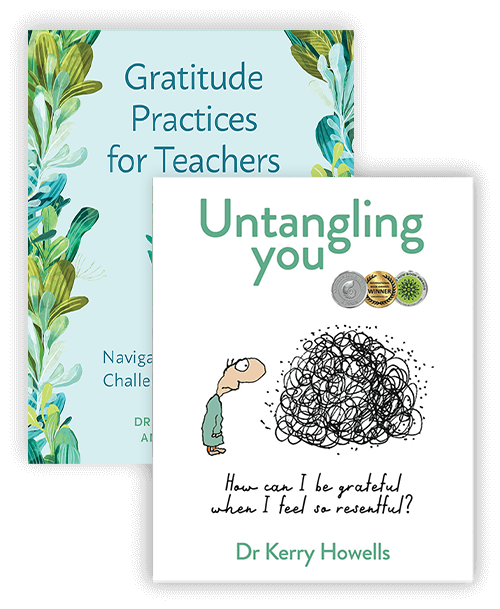As I explained in The Six Pillars of Gratitude handout, our deep gratitude is built on the strength of our sincerity. A common challenge is expressing gratitude in ways that are authentic to us and meaningful to the other person. Without this focus our gratitude risks being transactional; we may be wanting something in return or being self-serving.
When we think about deepening our gratitude by moving from feeling deep appreciation to expressing it in some way, we may find it difficult to do this authentically.
We may also wonder if the person to whom we are expressing gratitude will take it in the authentic way we intend. We might fear they will question our motives or think that we are not genuine in our thanks.
This was the case with many of the elite athletes I had the honour of working with recently. When asked the question: What is the major barrier to you being able to express gratitude? many replied that they feared that if they expressed gratitude to their coaches it could be interpreted as “sucking up”, perhaps so they could be considered for selection in a team or for the next Games event.
What is important to note here is that this fear actually prevented them from expressing gratitude, even when they felt it was appropriate and necessary to do so.
When we don’t express gratitude, the healthy flow of giving and receiving essential for flourishing relationships is halted. In the case above the coaches were left feeling undervalued and the athletes feeling incomplete or blocked because they were not expressing what is usually natural for them to express.
As anthropologist Afke Komte tells us gratitude encompasses an imperative force “that compels us to return the benefit we have received”. Gratitude is a moral force that connects us with something or someone beyond the self. It impels us to give back to another.
So how do we meet the challenge of expressing gratitude in a sincere and authentic way?
It’s all about the intention behind our gratitude. We may need to question whether we are using words or other expressions of thanks to manipulate the situation or person, or to get our own needs met. If we have this intention, we are not expressing gratitude. Gratitude has the essential quality of acknowledging what we receive from another. This is also what makes gratitude different from praise or positive acknowledgement.
In my gratitude work with teachers there was a qualitative difference in the way they greeted their students if they infused this action with a feeling of wanting to thank the students for what they sensed they were receiving from them. The same action of greeting students could be just a ritual or behaviour management strategy, or a gesture of good manners. What makes the greeting a gratitude practice is the intention to do so with an acknowledgement of what is being or about to be received from these students. Same action, different intention.
Most of us can sense the intention behind an action. We have a strong radar for any lack of sincerity and should trust that if our reasons for expressing gratitude are sincere, the other person will also recognise this. We don’t need to second guess what they might think. Indeed, we will be sincerer if our expressions of gratitude aren’t thwarted or inhibited by such fears.
If we are wanting to find our sincerity in expressing gratitude we may first need to engage in reflection about what it is we receive from another. With people whom we like and get along with, this can be a relatively easy and straightforward exercise. With those we find difficult, we may struggle to find anything as all we feel we have received from them is pain and heartache. In these instances, it might be wise to look beyond the person and more towards what this difficulty is teaching us about ourselves, or how it is strengthening our character.
When we can express sincere gratitude for the lesson behind the difficulty, we have struck gold. This is a brave and courageous act. We may well need support in attaining this kind of deep gratitude. A way to start might be remembering what we have received from a person in the past, and so be able see the good in them again.
We can also make it easier for others to express gratitude towards us by accepting or receiving their gratitude with sincerity. If coaches of elite athletes receive gratitude without putting up barriers or second-guessing motives, it is easier for athletes to engage in the healthy flow of gratitude. This will greatly enhance the coach-athlete relationship, which is so crucial.
Kerry







